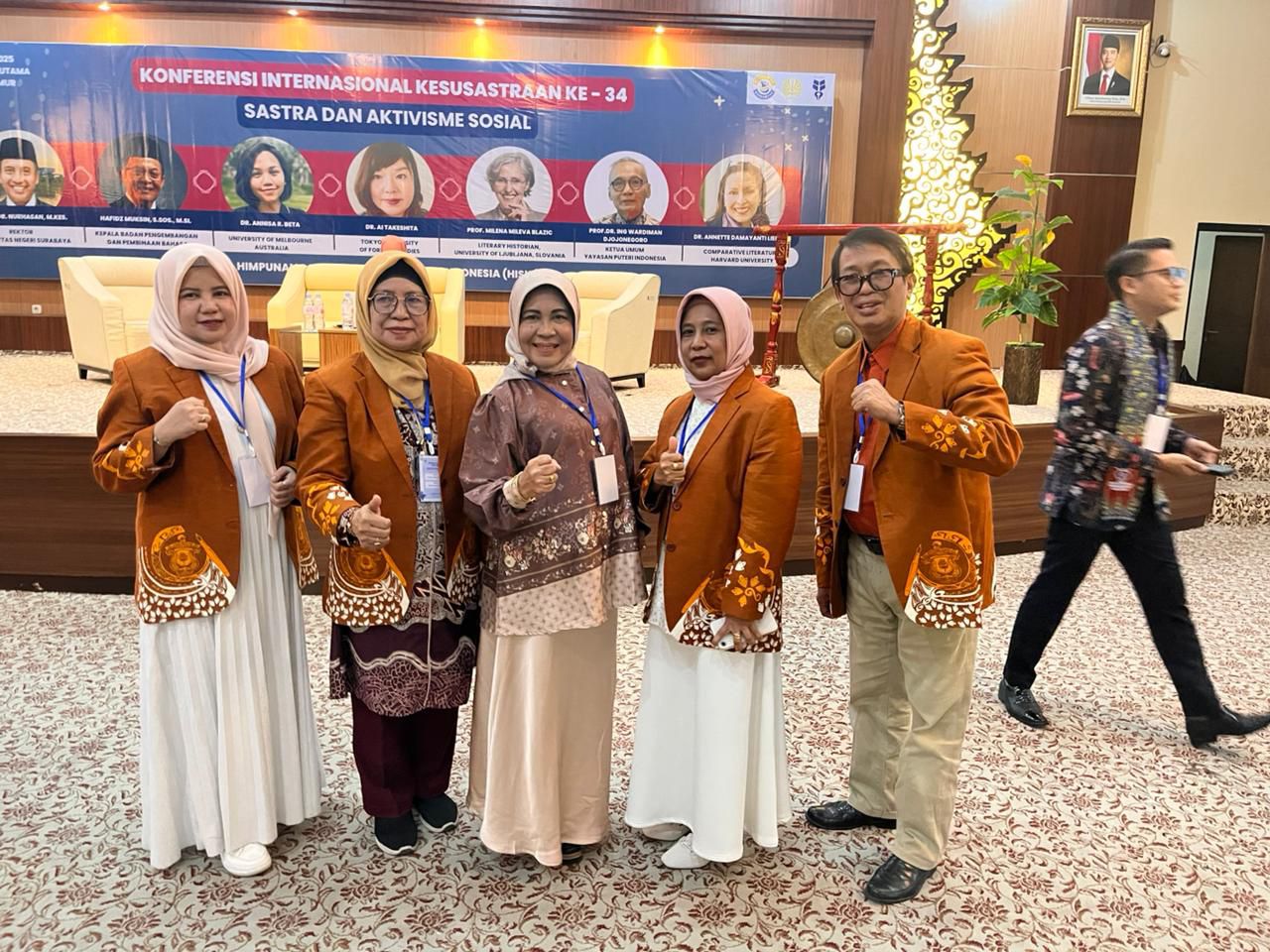Unhas Indonesian Literature Lecturers Attend 34th International Literary Conference in Surabaya

SURABAYA – Several lecturers from the Department of Indonesian Literature at Universitas Hasanuddin (Unhas) participated in the 34th International Literary Conference (KIK), organized by the Indonesian Literary Scholars Association (HISKI), held at Graha Wiyata Hall, East Java’s Center for Educational Quality Assurance (BBPMP), Friday–Saturday, October 10–11, 2025.
The attending Unhas lecturers included Prof. AB Takko, Prof. Asriani Abbas, Prof. Nurhayati, St. Nursaadah, Indarwati, Faisal Oddang, and Inriati Lewa. All served as speakers or paper presenters in this nationally and internationally scaled academic forum.
“This year, every Unhas Indonesian Literature lecturer present took part as a speaker or presenter,” said Indarwati, Secretary of the Department of Indonesian Literature at Unhas.
Indarwati presented a paper titled “Reading Signs, Preserving Traditions: A Semiotic and Cultural Tourism Exploration of the Jeknek Sappara Ritual.”
Her research explored the symbolic meanings and strategic potential of the Jeknek Sappara ritual in Balangloe Village, Jeneponto Regency, South Sulawesi, which holds deep spiritual, social, and cultural significance.
Using semiotic approaches from Chandler and Geertz, the study found that the ritual’s symbols represent cultural identity, social harmony, and the human-nature relationship.
Indarwati also emphasized that the Jeknek Sappara ritual could be developed into a participatory cultural tourism initiative rooted in local wisdom, without compromising its sacred values.
This year’s KIK carried the overarching theme “Literature and Social Activism,” highlighting literature’s role in addressing humanitarian issues, environmental concerns, and the evolution of digital technology.
HISKI Chairperson Prof. Novi Anoegrajekti affirmed that the conference was not merely an academic gathering, but also a moral responsibility of the literary community to engage with social and humanitarian challenges.
“Today, literature moves within the space of activism. It is expected to speak powerfully about the environment, equality, spirituality, and technology as reflections of a constantly changing world,” she stated.
With nine major subthemes and hundreds of participants, the 34th KIK served as a vital forum for idea exchange, research collaboration, and strengthening interdisciplinary academic networks to advance Indonesian literary studies. (*)